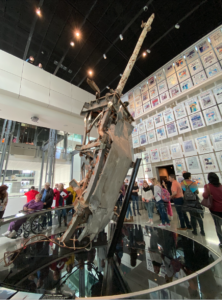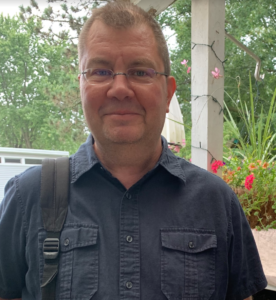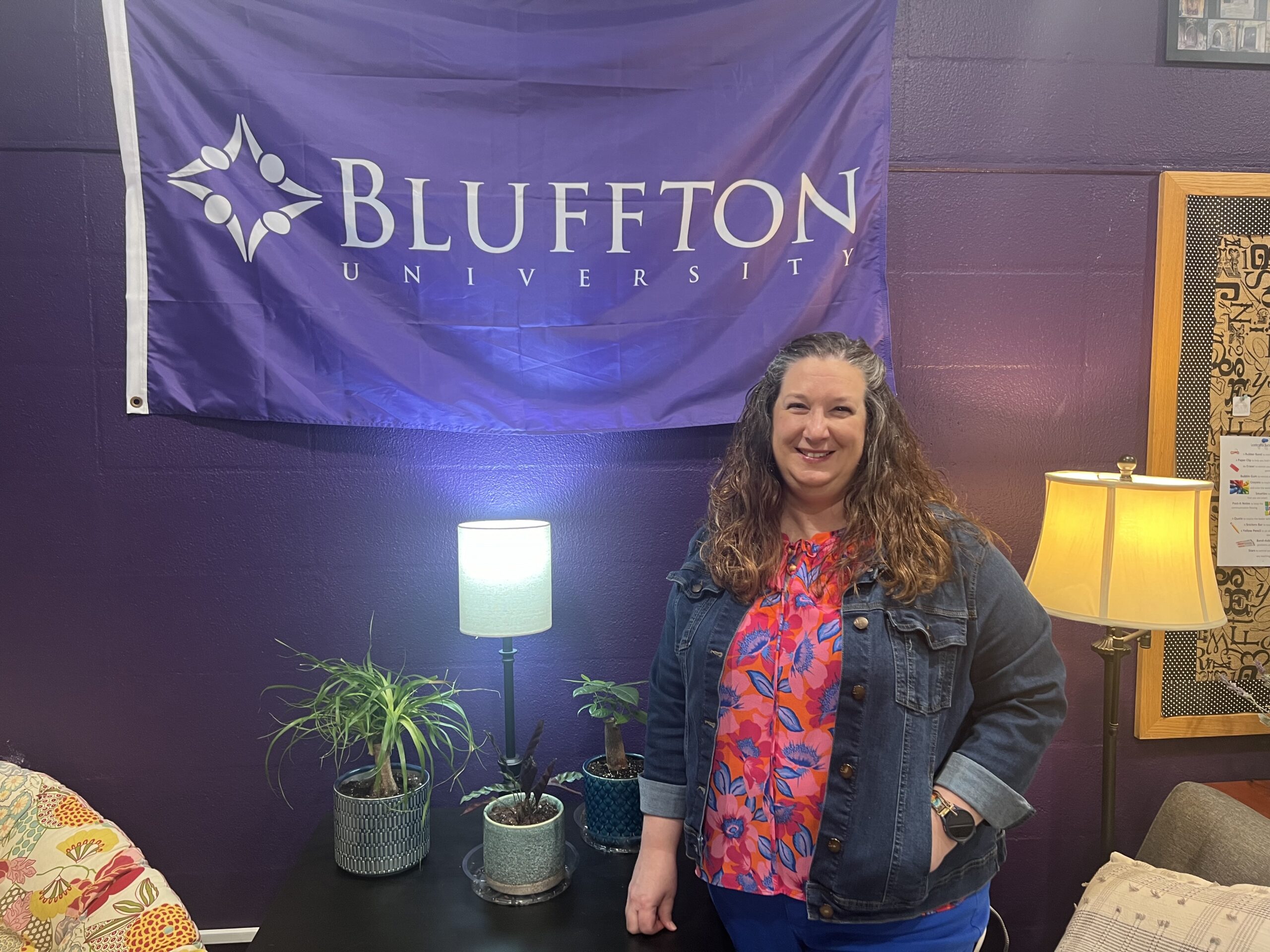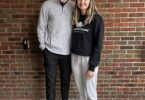Assistant Professor of Art Jim Fultz was living in New York City in 2001 when the events of Sept. 11 took place.
At the time, Fultz was living in the mostly residential neighborhood Bushwick in a building meant to be commercial.
“Believe it or not, this was before [my wife and I had] cellphones, so we still had an old rotary phone,” said Fultz.
The morning of the attacks Fultz had not left for work yet, but his wife had. She had made it to work before the first plane hit the first of the Twin Towers.
“She called me that morning,” said Fultz. “ She was working in the Museum of Modern Art, so she was in Manhattan, and called me from work on our phone. She said, ‘One of the towers had been hit, you know, don’t get on the subway.”
Instead, his wife told him to go on to the roof of their building. From there, Fultz was able to see the skyline.

World Trade Center’s North Tower antenna mast on display at the Newseum. Photo by Nicole Centofanti.
“When I looked at the skyline, probably within like two seconds, the second plane hit,” said Fultz. “I felt the sonic boom, the wave of the sound, go through my chest.”
Fultz said because his experience involved his body he felt it was something that would stick with him.
He remembered other people being on the roof with him as well as being in the streets watching the first tower burn.
“I remember the wave, sort of like the feeling,” said Fultz. “Then this collective scream around. All sorts of profanity and just like screaming.”
Overwhelmed by the experience Fultz passed out.
By the time he woke up, there was news of the Pentagon had been hit, and he was wondering what was going on.
Days following the events, Fultz said, in some ways, were more nerve-racking.
“Everyone that we knew, knew someone who lost their lives there,” said Fultz. “Sometimes multiple people, and everyone for months….it seemed like that’s all anyone wanted to talk about for months.”
Fultz also said the fallout of this event involved a lot of people he knew losing their jobs.

Assistant Professor of Art Jim Fultz on the first day of classes. Photo courtesy of Jim Fultz.
“I lost my job within a matter of months,” said Fultz. “My wife lost her job within a matter of weeks. Most people I knew who were working in what I like to call the culture industry, like either on Broadway doing props or some sort of music gig. Generating culture. Most everyone I knew was somehow involved in that, and the culture industry took a massive hit.”
This came with pressures of now needing a way to make rent as well as other stressors involved.
“Of the stories of that day, mine is by far is the least inspiring, you know hopeful,” said Fultz. “While the people like me who were just stunned in awe, in shock, in horror, other people dropped what they were doing to rush into this mountain of fire to do what they needed to.”






